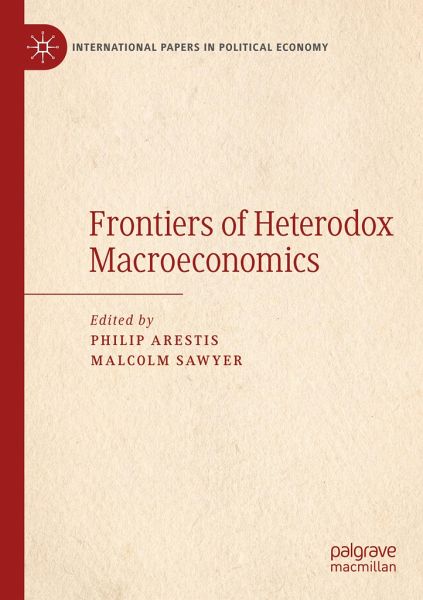
Frontiers of Heterodox Macroeconomics
Versandkostenfrei!
Versandfertig in 6-10 Tagen
113,99 €
inkl. MwSt.

PAYBACK Punkte
57 °P sammeln!
In the past few decades, and intensified since the global financial crisis of August 2007, heterodox macroeconomics has developed apace and its scope has broadened in a number of directions. The purpose of this volume is to review the 'state of the art' in heterodox macroeconomics, its strengths and weaknesses and future directions. Heterodox macroeconomics has broadened its scope through gender macroeconomics, ecological macroeconomics and further incorporated income distribution and inequality into macroeconomics analysis. New macroeconomic models, particularly stock-flow consistent modellin...
In the past few decades, and intensified since the global financial crisis of August 2007, heterodox macroeconomics has developed apace and its scope has broadened in a number of directions. The purpose of this volume is to review the 'state of the art' in heterodox macroeconomics, its strengths and weaknesses and future directions. Heterodox macroeconomics has broadened its scope through gender macroeconomics, ecological macroeconomics and further incorporated income distribution and inequality into macroeconomics analysis. New macroeconomic models, particularly stock-flow consistent modelling has become a widely used mode of analysis. Money and finance, monetary policy and fiscal policy as well as other policies have been discussed widely. The focus of this edited collection is on all of these issues, with chapters focusing on inflation, ecological sustainability and regulatory policy.














